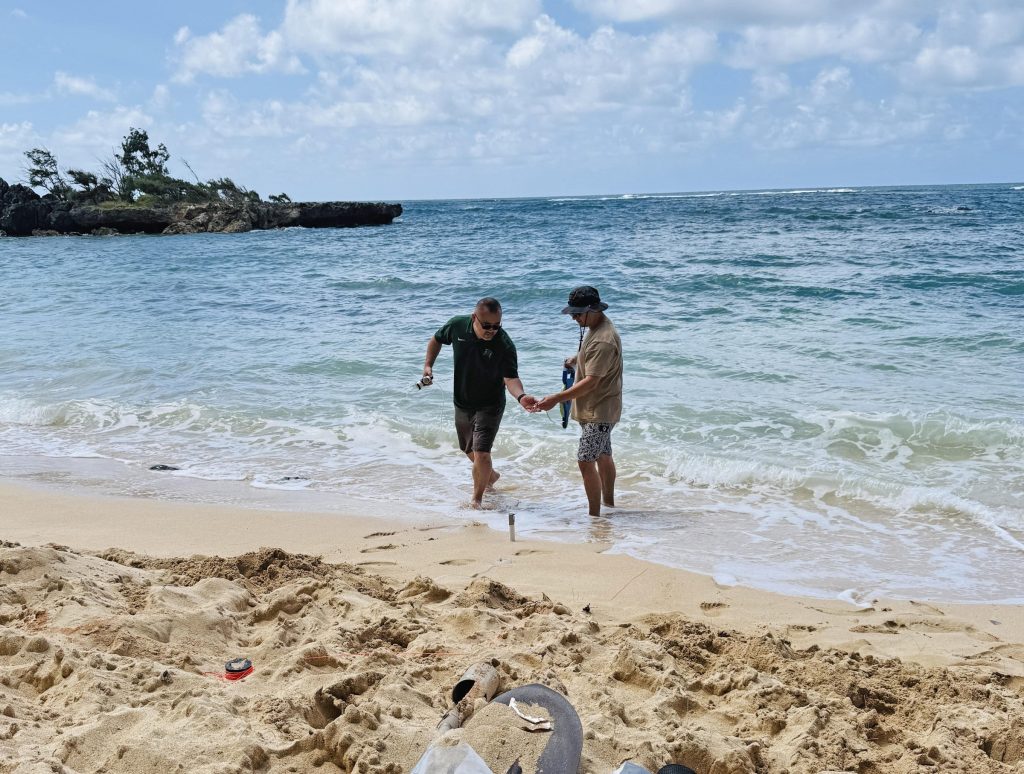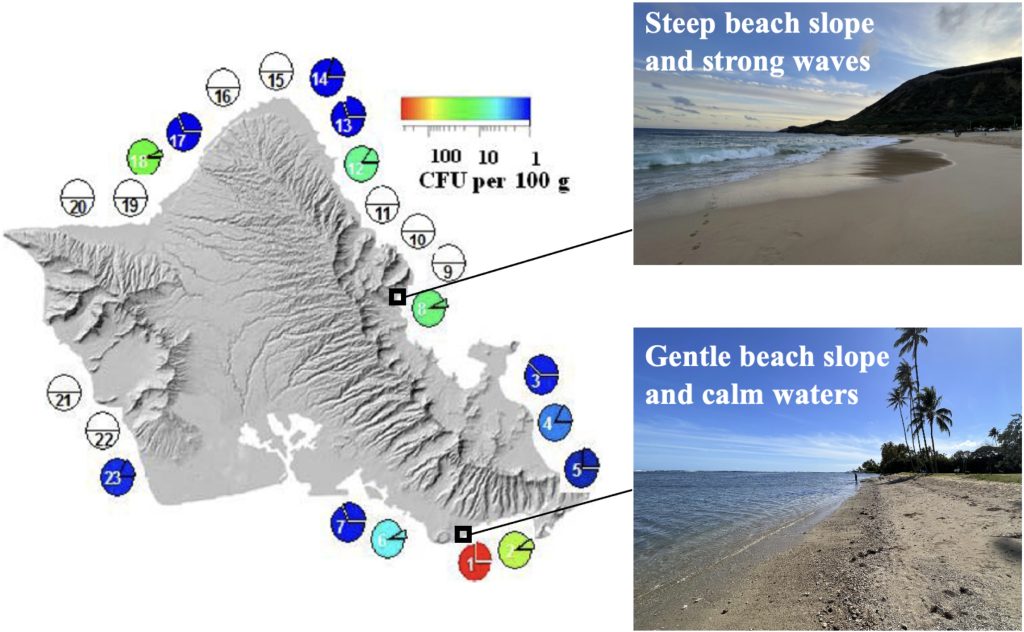Protecting Hawaiʻi’s beaches: UH project awarded $550K grant to help better predict water quality risks
Beaches are at the heart of Hawaiʻi’s culture, economy and ecosystems.
“Yet, they are increasingly vulnerable to fecal contamination,” said Xiaolong “Leo” Geng in a University of Hawaiʻi at Mānoa release about a new project.

Geng — an assistant professor at University of Hawaiʻi’s Water Resources Research Center and Department of Earth Sciences in the School of Ocean and Earth Science and Technology — is principal investigator for a new 3-year project at University of Hawaiʻi at Mānoa aimed at improving the ability to predict and manage water quality risks in Hawaiʻi’s coastal zones.
The college recently announced the project was awarded a $549,960 grant from National Science Foundation.
Because beaches are so vital for recreation, tourism and the health of the state’s ecosystem, increasingly being threatened by fecal contaminants — which can enter beach environments through human wastewater, stormwater runoff and animal waste — poses a risk to public health and marine ecosystems.
Especially since tides, waves and other natural coastal processes also can mobilize and transport these contaminants across the land–sea boundary.
University of Hawaiʻi at Mānoa’s project will investigate how coastal hydrologic forces — including tidal fluctuations and wave action — influence the accumulation, movement and discharge of fecal contaminants in beach aquifers.
Fieldwork and groundwater sampling will be conducted by research teams at two beaches in Hawaiʻi, where fecal contamination is known to happen. Data will then be used to develop advanced computer models to simulate how bacteria move through beach sediments.
Broader benefits of the project include training two graduate students and engaging undergraduate students through University of Hawaiʻi at Mānoa’s Undergraduate Research Opportunities Program.

The team also plans to involve local communities through educational outreach and citizen science activities to support long-term coastal water stewardship in Hawaiʻi.
“Our research will shed light on how bacteria move through sand and groundwater, helping to safeguard public health and marine environments,” said Geng, who is also director of project activities and will supervise hired graduate and undergraduate students. “Just as importantly, we hope to inspire the next generation of scientists and strengthen community stewardship of our coastal waters.”



